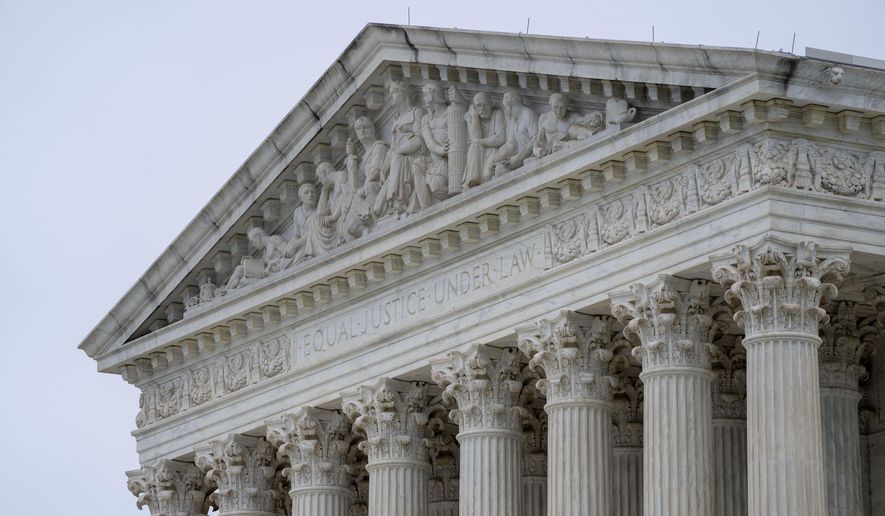The Supreme Court this week received its highest disapproval rating in a Quinnipiac University survey since 2004, the year Quinnipiac began polling voters about the high court.
Fifty-seven percent of respondents said they disapproved of the Supreme Court, while 35% said they approved, according to a Quinnipiac poll released Wednesday.
Six out of 10 Americans told the pollsters that they had read or heard news about ethics troubles involving Justice Clarence Thomas, who has faced a series of reports in the past two months about his friendship with GOP mega-donor Harlan Crow, who provided the justice with luxury vacations and gifts such as the payment of his nephew’s private school tuition.
Justice Thomas and Mr. Crow have defended their friendship. Mr. Crow said in an interview this week that they never speak about the Supreme Court.
Forty-six percent of respondents said Justice Thomas should resign since he did not disclose the trips, the tuition or Mr. Crow’s purchase of his mother’s home while she continued to still reside there. ProPublica published a series of reports about the justice.
The issue has sparked debate on Capitol Hill and a push by Senate Democrats to enact legislation imposing a code of ethics on the high court. Senate Judiciary Committee Chairman Richard Durbin invited Chief Justice John G. Roberts Jr. to testify on the matter earlier this month, but he declined.
“Short of extraordinary circumstances, a Supreme Court appointee has the job for life. That threshold may have been crossed in the minds of a majority of Americans who want Justice Clarence Thomas investigated, with a slight plurality saying he should hang up his robe and resign,” said Tim Malloy, polling analyst for Quinnipiac University.
The survey was conducted May 18-22 among 1,819 adults. It had a margin of error of plus or minus 2.3 percentage points.
The high court doesn’t have a mandatory code of ethics, even though lower court judges are expected to avoid impropriety or do business with anyone who may come before the bench.
Chief Justice Roberts has said the high court has generally followed the Judicial Conferences’ Code of Ethics that are binding on lower courts — but not the Supreme Court — since 1991.
He said all justices must file disclosures that are reviewed by the Judicial Conference Committee on Financial Disclosure and follow what lower courts do with recusals. But he noted that the system is flexible, given the composition of the high court.
He also said that amid increased threats, the justices sometimes don’t disclose their travel arrangements for security reasons.
• Alex Swoyer can be reached at aswoyer@washingtontimes.com.




Please read our comment policy before commenting.